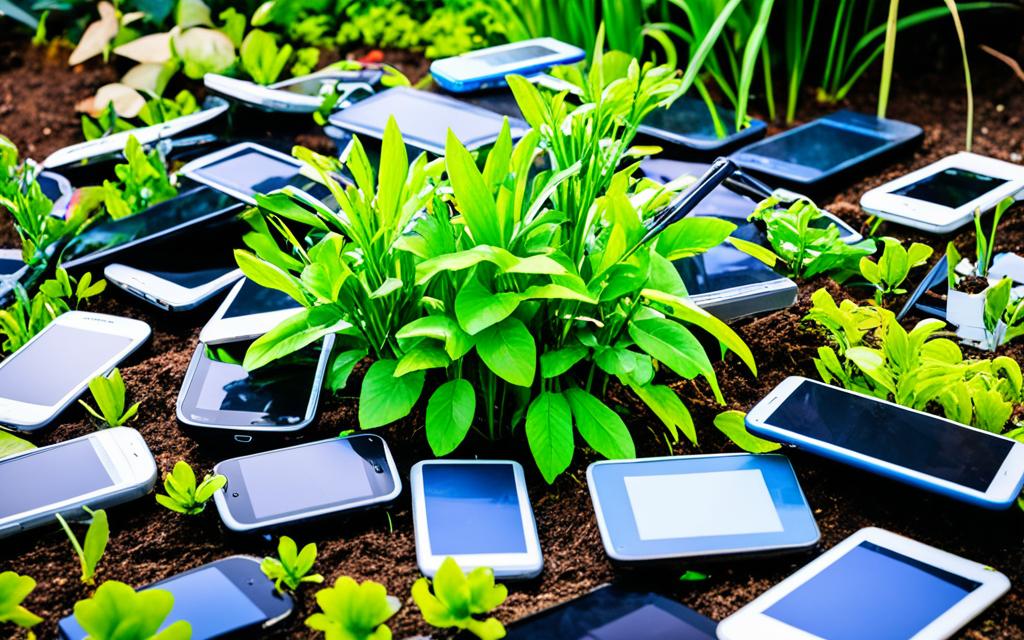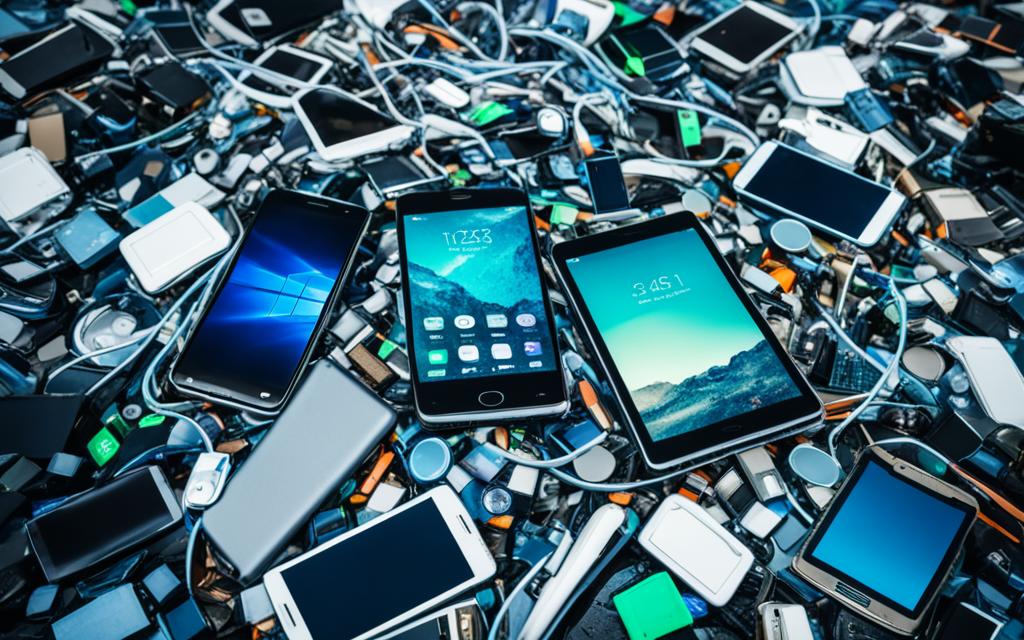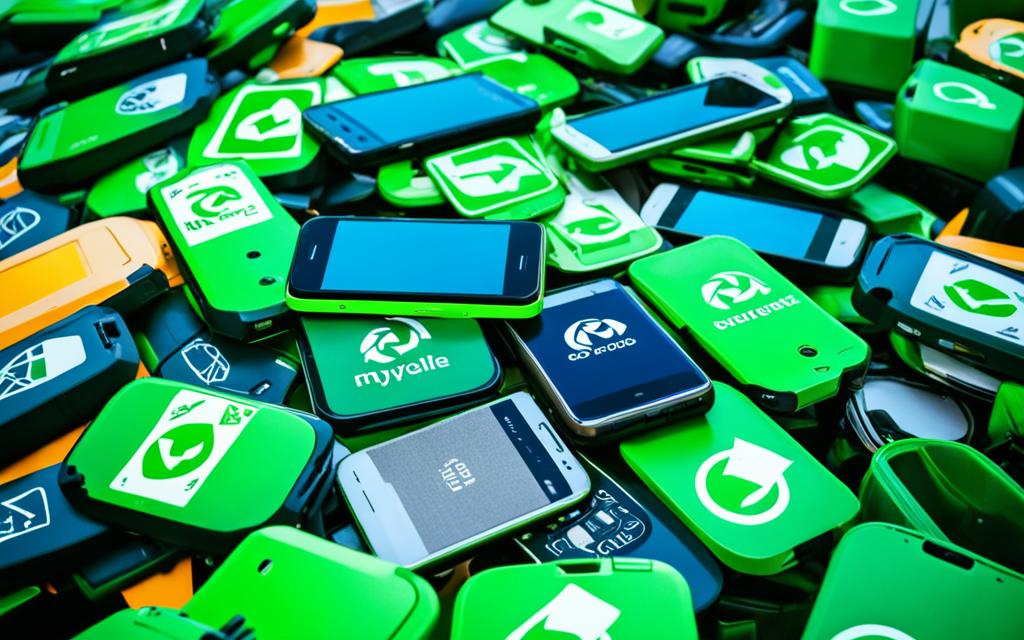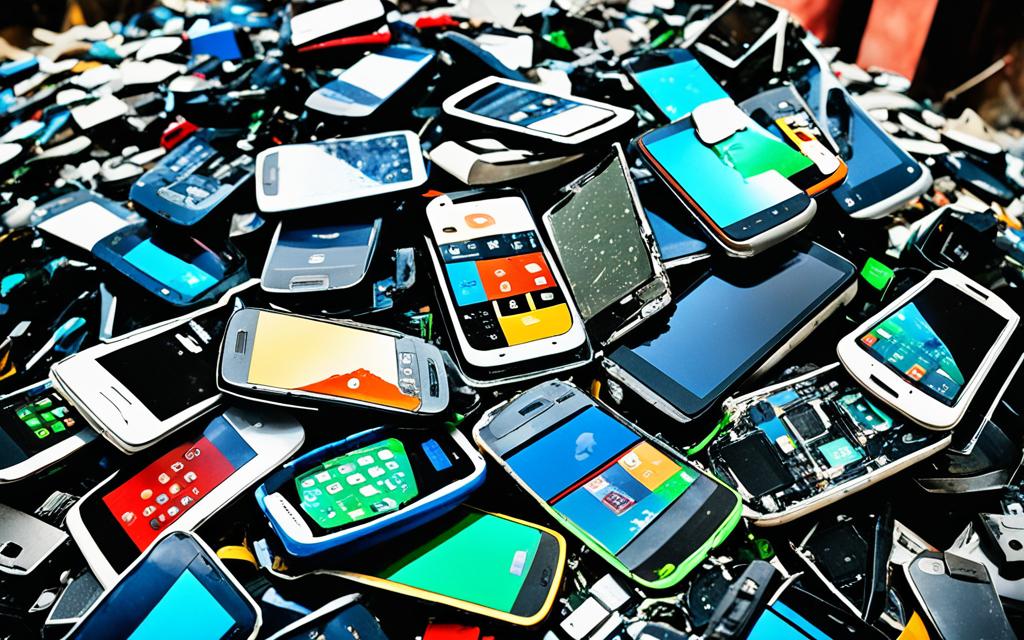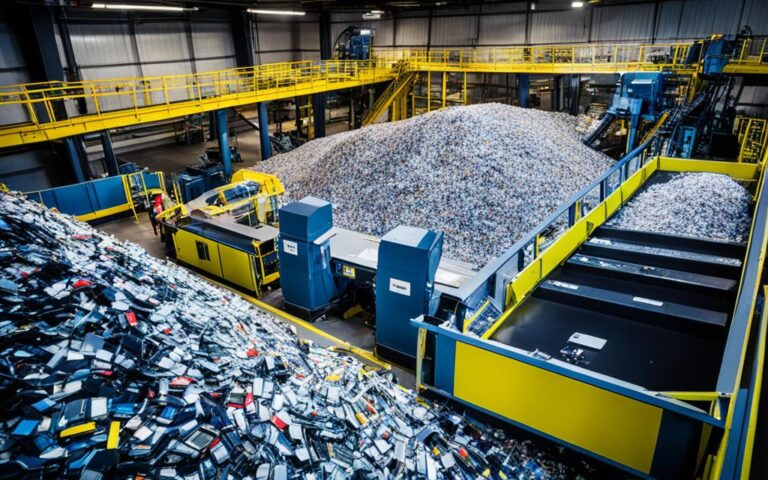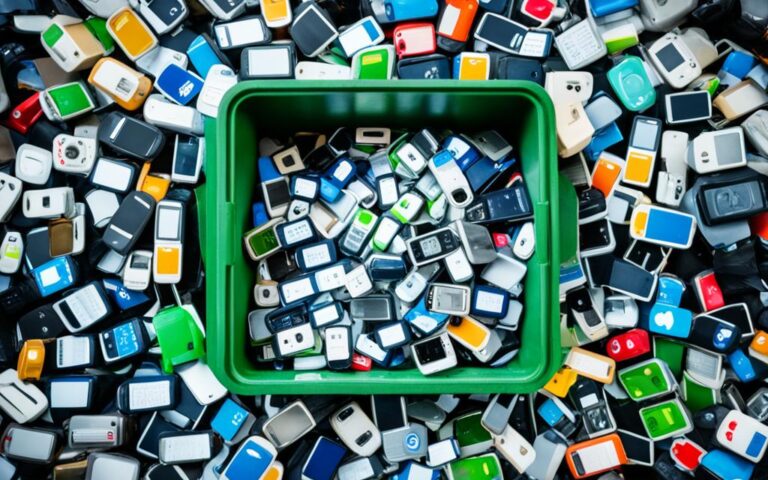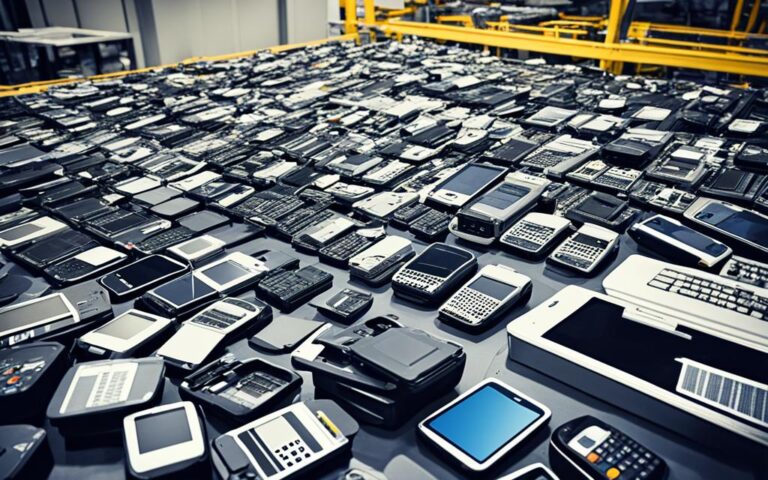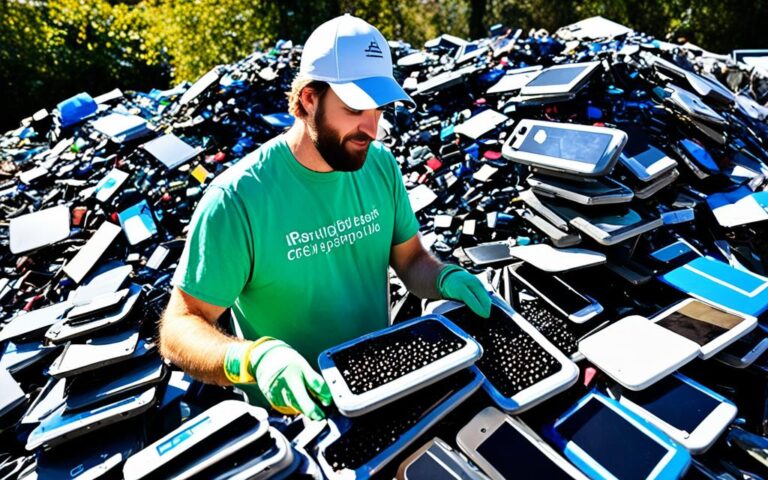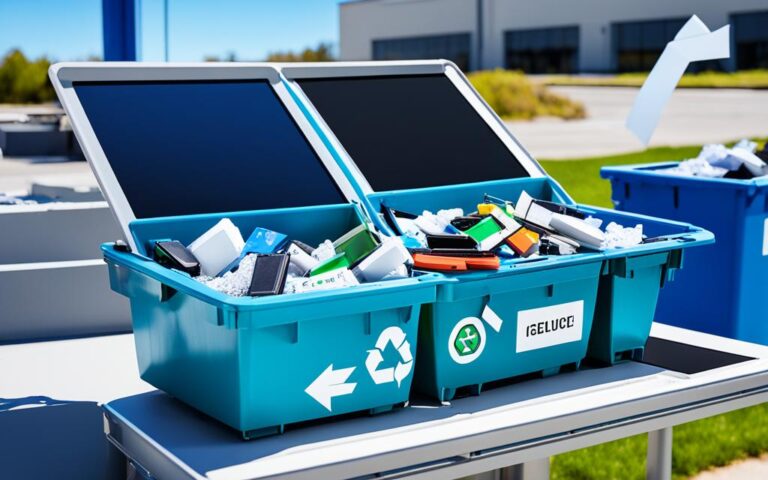How Phone and Tablet Recycling Contributes to Sustainable Urban Development
In today’s fast-paced world, where technology constantly evolves, our reliance on phones and tablets has never been greater. However, with these advancements, comes a significant environmental challenge – electronic waste. To address this issue and create a sustainable future, it is crucial to embrace phone recycling and tablet recycling as essential practices.
Phone recycling and tablet recycling play a vital role in sustainable urban development. The proper disposal of electronic waste, commonly known as e-waste, is essential to prevent harmful chemicals from polluting our environment. By recycling these devices, we not only prevent the release of toxins but also unlock valuable raw materials that can be reused, reducing the need for resource-intensive production methods.
Aside from conserving resources, recycling electronic devices also helps to reduce pollution and energy costs associated with landfill disposal. By committing to responsible e-waste management, we take a significant step towards a greener future for our cities.
To learn more about the importance of extending the lifespan of devices for hardware sustainability, continue reading our next section.
Extending the Lifespan of Devices for Hardware Sustainability
The lifespan of smartphones, tablets, and computers is integral to achieving hardware sustainability. Unfortunately, many individuals contribute to the growing electronic waste problem by replacing their devices every few years. However, there are several strategies that can be employed to extend the life of these devices and promote a more sustainable future.
Software Updates and Repairs
Regular software updates and repairs can significantly prolong the lifespan of devices. These updates not only enhance device performance but also improve security and compatibility with the latest applications. Repairing devices, whether it’s fixing a cracked screen or replacing a worn-out battery, not only saves money but also reduces the need for new devices, thereby reducing e-waste.
Reusing Devices for Different Purposes
Another effective way to extend the lifespan of devices is by repurposing them for different uses. For instance, an older smartphone that may no longer meet the demands of everyday phone use can be repurposed as a dedicated music player or a smart home controller. By giving devices a second life, we reduce the need to purchase new devices unnecessarily, minimizing our impact on the environment.
Investing in High-Quality and Repairable Devices
Choosing high-quality devices that are designed to last longer and can be easily repaired is crucial for hardware sustainability. When purchasing new devices, it’s important to consider their durability, repairability, and the availability of spare parts. Investing in devices from reputable brands that prioritize sustainability can contribute to reducing e-waste and promoting a more circular economy.
By actively making conscious choices to extend the lifespan of our devices through software updates, repairs, and repurposing, we can significantly reduce e-waste and make a positive impact on the environment.
| Strategy | Benefits |
|---|---|
| Regular software updates |
|
| Repairs |
|
| Device repurposing |
|
| Investing in high-quality and repairable devices |
|
Environmentally Friendly Disposal of E-Waste
Proper disposal of e-waste is essential to minimize its impact on the environment. Recycling is one of the best ways to avoid environmental pollution caused by e-waste. Specialized companies can disassemble devices and extract valuable raw materials for recycling. Reusing or donating functioning hardware and devices is another environmentally friendly disposal option.
It is important to follow local regulations and work with authorized companies to ensure proper disposal of e-waste. Avoiding e-waste altogether is also possible by making conscious purchasing decisions, repairing appliances instead of throwing them away, selling or passing on unwanted devices to others, and upcycling old electronic appliances into useful items. By adopting these practices, we can reduce the amount of e-waste generated and contribute to a greener future.
Proper disposal of e-waste is not only our responsibility, but it also serves as an opportunity to protect the environment and make a positive impact on our planet. By recycling, reusing, and upcycling electronic devices, we can significantly reduce the harmful effects of e-waste and embrace a more sustainable approach to disposal.
When it comes to e-waste disposal, recycling should be the go-to option. Through the recycling process, specialized companies can efficiently disassemble electronic devices, extract valuable materials, and ensure they are properly recycled. This not only conserves resources but also reduces the need for new materials, helping to preserve our planet’s natural resources.
Reusing or donating functioning hardware is another way to dispose of e-waste in an environmentally friendly manner. By passing on devices that still have a useful life to others, we extend their lifespan and reduce the need for new devices. Additionally, donating allows others to benefit from these devices, promoting a more inclusive and sustainable society.
While recycling and reusing are effective methods, it is crucial to adhere to local regulations and work with authorized companies for e-waste disposal. These companies have the expertise to handle electronic waste responsibly, ensuring that hazardous materials are properly disposed of without harming the environment or endangering human health.
Avoiding e-waste altogether is a proactive approach towards environmental conservation. By making conscious purchasing decisions, opting for repair instead of replacement, and upcycling old electronic appliances into useful items, we can minimize the amount of e-waste generated. Each small action contributes to a bigger impact and brings us closer to a greener future.
Let’s take responsibility for our e-waste disposal and actively participate in creating a sustainable planet for future generations.
Next, we’ll explore the role of refurbished devices and open source hardware in promoting a sustainable approach to technology consumption.
The Role of Refurbished Devices and Open Source Hardware
When it comes to sustainable choices for our electronic devices, opting for refurbished devices and embracing open source hardware can make a significant impact. Refurbished devices provide a sustainable alternative to purchasing brand new devices, offering a cost-effective and environmentally friendly option.
Refurbished devices, although used, undergo a thorough refurbishment process to ensure their good condition and functionality. By choosing refurbished devices, we contribute to the reduction of electronic waste, as these devices find new homes instead of ending up in landfills.
Furthermore, open source hardware gives individuals greater control over their devices and the ability to repair and upgrade them. By utilizing open source software and hardware, users can extend the lifespan of their devices, reducing the need for frequent replacements.
Embracing refurbished devices and open source hardware aligns with our commitment to sustainability, allowing us to make conscientious choices that have a positive impact on the environment.
An excellent example of a sustainable smartphone is the Fairphone. Designed with repairability and longevity in mind, the Fairphone addresses the issue of e-waste by prioritizing a modular design that allows for easy repair and upgrade.
By embracing refurbished devices and open source hardware, we not only contribute to the reduction of electronic waste but also empower ourselves to make more sustainable choices in our technology consumption.
Key Takeaways:
- Refurbished devices offer a sustainable alternative to buying new devices.
- Open source hardware empowers users to extend device lifespan through repairs and upgrades.
- The Fairphone is an example of a sustainable smartphone designed for repairability.
- Embracing refurbished devices and open source hardware aligns with our commitment to sustainability.
What Software Companies Can Do for E-Waste Reduction
Software companies play a crucial role in addressing the issue of e-waste and can take significant steps towards its reduction. By implementing sustainable business practices, software companies can contribute to a greener future and minimize their environmental impact.
Prioritize Environmentally Friendly Materials
One way software companies can contribute to e-waste reduction is by using environmentally friendly materials in the manufacturing of electronic equipment. By opting for sustainable materials that are easier to recycle, software companies can ensure that their products have a lower impact on the environment.
Embrace Durability and Repairability
Another important step is prioritizing durability and repairability in device design. By creating devices that are built to last and can be easily repaired, software companies can extend the lifespan of electronic devices. This approach promotes a culture of sustainability by reducing the need for frequent replacements and repairs.
Adopt Cloud-Based Solutions
Software companies can also contribute to e-waste reduction by embracing cloud-based solutions. Cloud computing reduces the reliance on physical devices and promotes a more streamlined and efficient use of technology. By minimizing the need for physical devices, the production of e-waste can be significantly reduced.
Educate Customers and Employees
Furthermore, educating customers and employees about proper e-waste disposal methods and the importance of recycling is crucial. Software companies can raise awareness about the impact of e-waste and provide guidelines on responsible disposal practices. By fostering a sense of environmental responsibility, software companies can encourage individuals to take proactive steps towards e-waste reduction.
In the words of Bill Smith, CEO of SustainableTech Solutions: “Software companies have the power to drive positive change in the electronics industry. Through sustainable practices, we can minimize e-waste and contribute to a more sustainable future for all.”
By taking these actions, software companies can actively contribute to e-waste reduction and demonstrate their commitment to environmental sustainability. By embracing sustainable business practices, software companies can lead the way towards a greener and more sustainable future.
Comparison of E-Waste Reduction Initiatives
| Initiative | Description | Impact |
|---|---|---|
| Durability and Repairability | Prioritizing devices that are designed to last longer and can be easily repaired | Reduces the need for frequent replacements and repairs, extends the lifespan of devices |
| Cloud-Based Solutions | Embracing cloud computing to minimize the need for physical devices | Reduces the production of e-waste by minimizing the reliance on physical devices |
| Education and Awareness | Providing information and guidelines on proper e-waste disposal methods | Raises awareness and promotes responsible e-waste disposal practices |
Conclusion
Recycling phones and tablets is a vital step towards sustainable urban development. The improper disposal of e-waste poses serious threats to the environment and human health. However, by embracing recycling initiatives for electronic devices, we can make a significant impact in reducing pollution, conserving resources, and minimizing the energy costs associated with landfill disposal.
Another key aspect of achieving a sustainable future lies in extending the lifespan of devices. Through repairs, software updates, and reusing devices for alternative purposes, we can contribute to hardware sustainability. By maximizing the utility of our devices, we not only reduce electronic waste but also decrease the demand for new products, promoting a cycle of responsible consumption and production.
Proper disposal methods, such as recycling and reusing, are essential to avoid environmental pollution. Working hand in hand with specialized companies that can disassemble devices and extract valuable raw materials for recycling is crucial. Moreover, donating or selling functioning hardware and devices, as well as upcycling them into useful items, are environmentally friendly options to consider.
Last but not least, software companies also play a pivotal role in mitigating e-waste generation. By prioritizing environmentally friendly materials, device durability, and repairability in their designs, they can contribute to a greener future. Additionally, education and awareness initiatives from software companies can help educate both customers and employees about proper e-waste disposal methods and the importance of recycling.
By collectively embracing recycling, extending device lifespans, following proper disposal methods, and adopting sustainable practices, we have the power to create a sustainable future and contribute to the development of greener, more environmentally friendly urban areas.
FAQ
Why is recycling phones and tablets important for sustainable urban development?
Recycling phones and tablets is important for sustainable urban development because e-waste, including electronic devices like phones and tablets, contains harmful chemicals that can be released into the environment if not disposed of properly. By recycling these devices, valuable raw materials can be reused, reducing the need for new materials and conserving resources. Additionally, recycling e-waste helps reduce pollution and energy costs associated with landfill disposal.
How can extending the lifespan of devices contribute to hardware sustainability?
Extending the lifespan of devices through repairs, software updates, and reusing them for alternative purposes contributes to hardware sustainability. Many people replace their devices every few years, contributing to the growing problem of electronic waste. By keeping older devices functional, they can continue to be used instead of being discarded. Reusing devices for different purposes, like using an older smartphone as a music player, also helps extend their lifespan. Additionally, purchasing high-quality devices that are designed to last longer and can be repaired contributes to hardware sustainability.
What are environmentally friendly disposal options for e-waste?
Proper disposal of e-waste is essential to minimize its impact on the environment. Recycling is one of the best ways to avoid environmental pollution caused by e-waste. Specialized companies can disassemble devices and extract valuable raw materials for recycling. Reusing or donating functioning hardware and devices is another environmentally friendly disposal option. It is important to follow local regulations and work with authorized companies to ensure proper disposal of e-waste. Avoiding e-waste altogether is also possible by making conscious purchasing decisions, repairing appliances instead of throwing them away, selling or passing on unwanted devices to others, and upcycling old electronic appliances into useful items.
How do refurbished devices and open-source hardware contribute to sustainability?
Refurbished devices offer a sustainable alternative to buying brand new devices. These devices are used but have been refurbished and tested to ensure they are in good condition. Opting for refurbished devices reduces electronic waste and can also be more cost-effective. Additionally, using open-source software and hardware provides individuals with more control over their devices and the ability to repair and upgrade them, further extending their lifespan. The Fairphone is an example of a sustainable smartphone that is designed for repairability and longevity, reducing e-waste. By embracing refurbished devices and open-source options, we can make choices that align with our commitment to sustainability.
What can software companies do to reduce e-waste?
Software companies have a significant impact on e-waste generation and can take steps to reduce it. They can use environmentally friendly materials in the manufacture of electronic equipment, making them easier to recycle. Additionally, software companies can prioritize durability and repairability in device design, ensuring that devices have a longer lifespan. Embracing cloud-based solutions can also reduce the need for physical devices and minimize e-waste. Educating customers and employees about proper e-waste disposal methods and the importance of recycling is crucial. By adopting sustainable business practices, software companies can contribute to e-waste reduction and minimize their environmental impact.
How does recycling phones and tablets contribute to sustainable urban development?
Recycling phones and tablets is a vital step towards sustainable urban development. E-waste poses serious threats to the environment and human health if not disposed of properly. By recycling electronic devices, we can reduce pollution, conserve resources, and minimize the energy costs associated with landfill disposal. Extending the lifespan of devices through repairs, software updates, and reusing them for alternative purposes further contributes to hardware sustainability. Proper disposal methods, such as recycling and reusing, should be followed to avoid environmental pollution. Software companies also play a role in e-waste reduction by adopting sustainable practices and educating their stakeholders. By collectively taking these actions, we can create a greener future and contribute to sustainable urban development.


